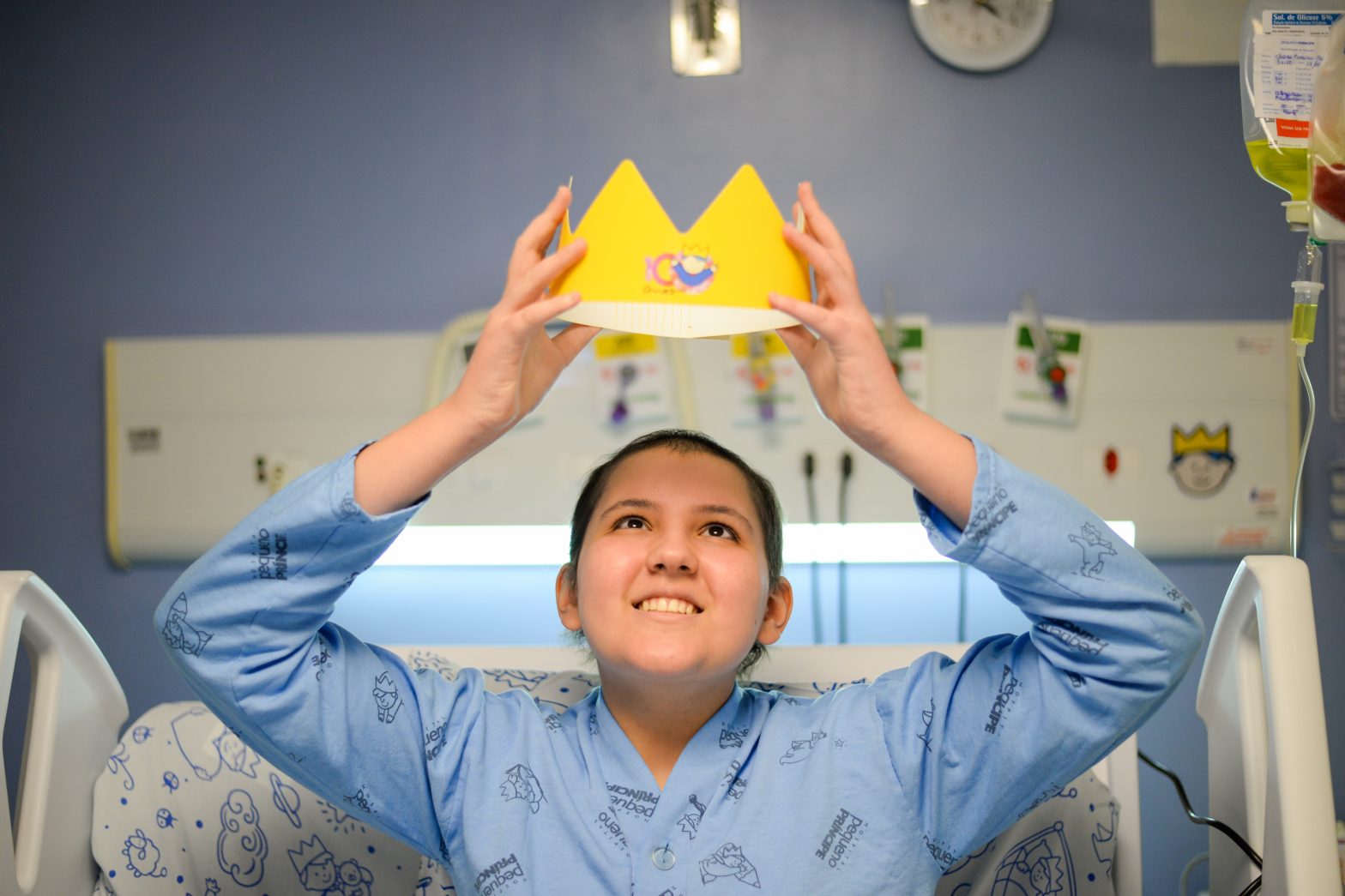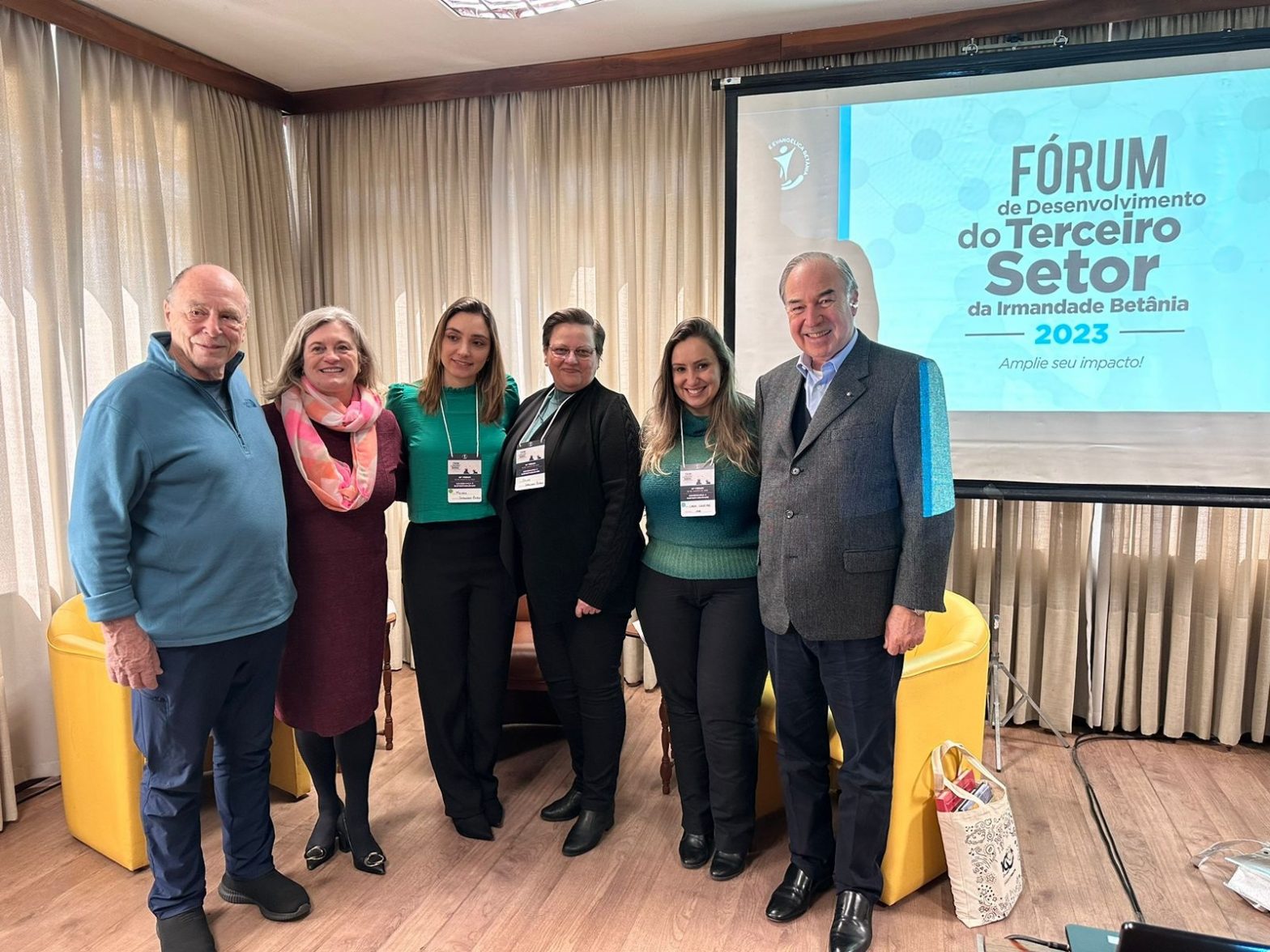Oncology and Hematology Service at Pequeno Príncipe Hospital turns 55
One of the oldest and most complete in Brazil, the service makes available humanized and excellent treatment – from diagnosis to the most innovative therapies – with a survival rate of 74%
At the beginning of the 1960s, a medical student arrived at Pequeno Príncipe Hospital to improve his training. This professional’s encounter with children facing cancer would impact his career, the structure of Pequeno Príncipe, and the lives of thousands of patients and their families.
This student was Eurípides Ferreira, one of Brazil’s most prominent names in hematology, responsible for carrying out the first bone marrow transplantation in Brazil. He was the one who initiated care for children fighting cancer and hematological diseases at a time when the diagnosis was almost equivalent to a death sentence.
A few years later, in 1968, the Pequeno Príncipe Oncology and Hematology Service was formalized. With the arrival of new professionals, such as the physician Flora Mitie Watanabe, the service grew and became one of Brazil’s most essential and complete. In 2023, it turns 55 years old, combining experience, innovation, knowledge, training of new professionals, and humanization to promote resolute care, which achieves an average cure rate of 74%.
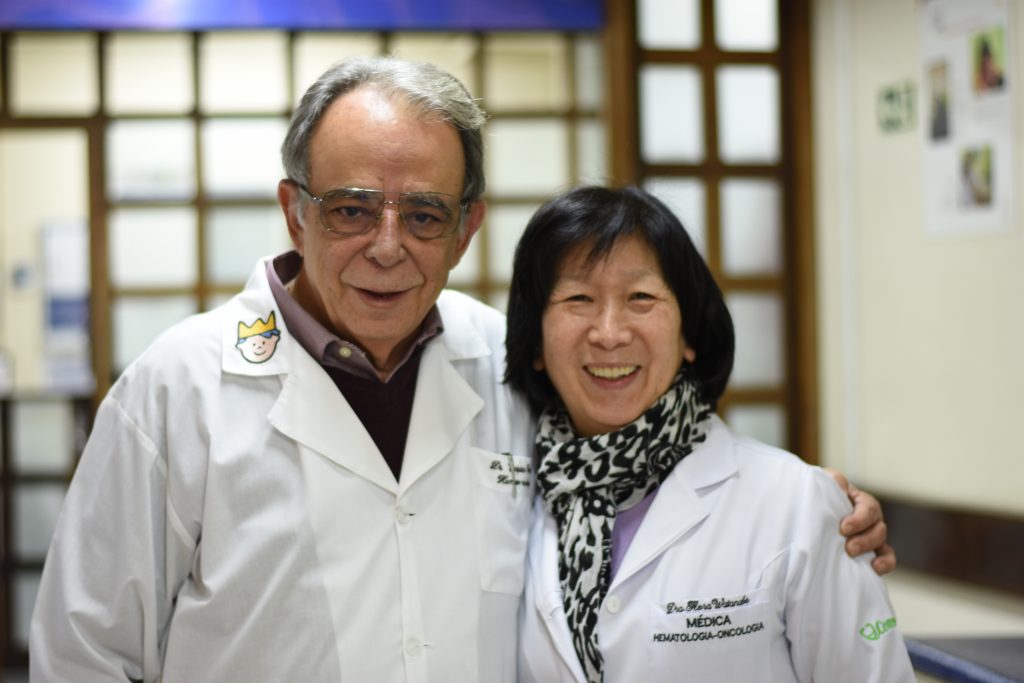
Complete line of care
One of the significant differences between the Oncology and Hematology Service at Pequeno Príncipe Hospital is the offer of a complete line of care. The institution has an Image Center that can perform everything from more straightforward exams, such as X-rays, to magnetic resonance imaging to diagnose. The patient also has at their disposal the Advanced Diagnostic Center of Pequeno Príncipe, where a series of genetic tests can be carried out, which are essential for elucidating some cases and evaluating the prognosis of the disease, guiding the doctor in making decisions regarding the best and most effective treatments.
After confirming the diagnosis, the patient has a structure dedicated to clinical and surgical treatment. There are 21 inpatient beds, a chemotherapy outpatient clinic, a surgical room with specialized teams, and ICU beds that offer all the necessary support.
“Another big difference is that the oncologists and hematologists at Pequeno Príncipe can count on the experience and knowledge of professionals from 35 pediatric specialties, who join the care team according to the needs of each patient,” emphasizes oncologist Ana Paula Kuczynski Pedro Bom. Neurologists, orthopedists, cardiologists, geneticists, and many other specialists evaluate the patient comprehensively. Psychologists, speech therapists, physiotherapists, nutritionists, pharmacists, and nurses are among the professionals who complete the team.
Patients with a recommendation can also undergo a bone marrow transplantation (BMT) at the institution and Car-T Cell. This innovative therapy helps combat some types of cancer when other treatments do not produce results.
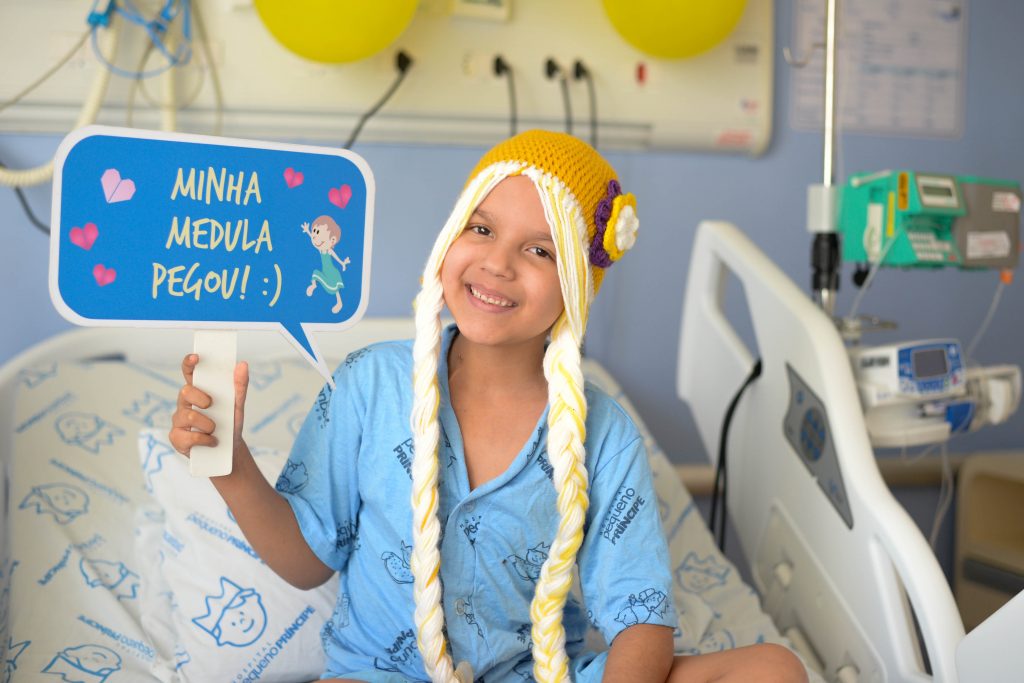
For patients who need some type of rehabilitation, Pequeno Príncipe has two structures: one within the Hospital itself and the other exclusively for rehabilitation, the Rehabilitation and Coliving Center of Pequeno Príncipe.
Once the most intense stage of treatment is complete, patients receive outpatient follow-up until they can celebrate their cure. Throughout this journey, they can count on care 24 hours a day, seven days a week, in the Emergency Room, and with a highly qualified team committed to the lives and health of each boy and girl who face this battle.
Humanization
Oncologist Ana Paula highlights that, in addition to taking care of physical health, Pequeno Príncipe also takes care of and guarantees other rights of children and adolescents undergoing cancer treatment at the institution. “During hospitalization, patients are accompanied by teachers so they do not lose connection with their schools of origin and continue to advance in their studies. Dozens of cultural initiatives also fill the Hospital’s corridors with music, theater, visual arts, and many other artistic languages. Volunteers ensure lots of fun in the rooms, clinic, or toy libraries spread across the institution. We are advancing in integrative practices, with initiatives such as music therapy, which benefit children, family members, and teams,” she points out.
When necessary, patients and their families receive psychological counseling and support from the social service team. Family members can also accompany the child throughout their hospitalization, receiving support for a qualified stay in the Hospital, which includes meals, a dedicated area for rest and personal hygiene, and training for active participation in recovery.
New professionals
Since 2000, Pequeno Príncipe Hospital has trained professionals to work in the fight against childhood cancer. The Medical Residency Program in Pediatric Oncology (formerly called Cancerology) lasts two years. It receives two professionals per year, with prior training in pediatrics as a prerequisite, from different Brazilian regions. Since then, 19 residents have been trained, contributing to improving medical care for children and adolescents across the country.
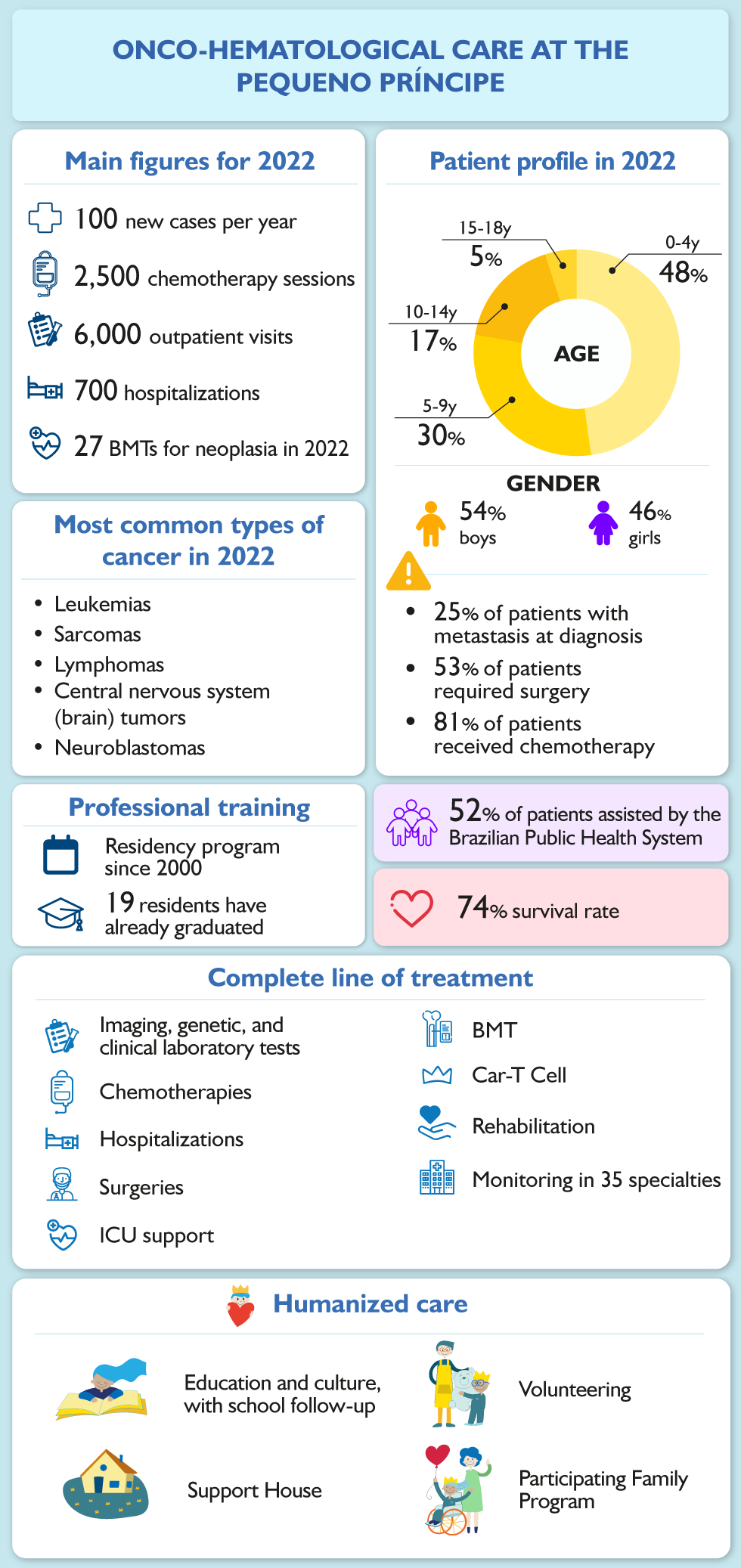
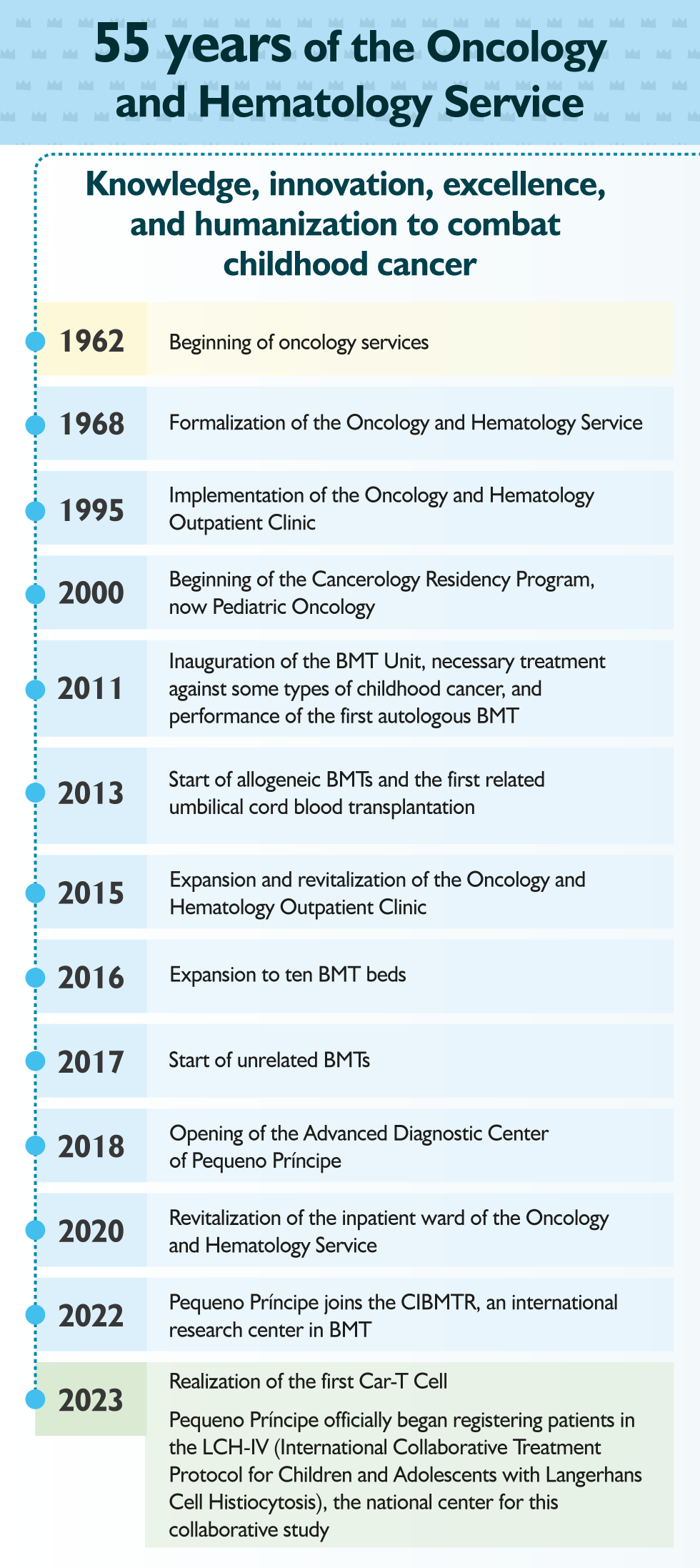
More
Pequeno Príncipe has been elected one of the best hospitals in the world
The institution also appears as the best exclusively pediatric institution in Latin America in the ranking prepared by “Newsweek” magazine
Research Institute will have a research project financed by Finep
Scientist Luciane Cavalli’s study will investigate a very aggressive type of childhood cancer: neuroblastoma
Representatives from Pequeno Príncipe Hospital participate in discussions that strengthen the third sector
By participating in these events, the institution reinforces its commitment to the UN 2030 Agenda and to acting centered on ESG principles


